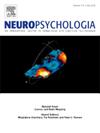No evidence for a targeted memory reactivation effect on word-meaning priming
IF 2
3区 心理学
Q3 BEHAVIORAL SCIENCES
引用次数: 0
Abstract
The subordinate meaning of a homonym becomes temporarily more accessible after it is encountered, an effect termed word-meaning priming. Over the longer-term, word-meaning priming is better maintained across periods of sleep compared with wakefulness. This has been explained as sleep actively consolidating episodic memories related to recent linguistic events (Gaskell et al., 2019). Here, we tested this hypothesis by investigating whether word-meaning priming can be boosted following sleep using targeted memory reactivation (TMR), a technique of biassing specific memories for sleep-based consolidation by presenting information-associated sensory cues during sleep. In an exposure phase, 40 (of 80) homonyms were primed toward their subordinate meaning via a sentence, which was also associated with an auditory cue (the homonym) for TMR. Participants then took a ∼2 h nap, where half of the cues from exposure (memory cues) were replayed with the aim of strengthening the subordinate sentence meaning, along with 20 cues that had not been encountered previously (control cues). After sleep, there was an overall word-meaning priming effect, however there was no additional benefit of TMR on priming, nor did TMR benefit the recall of contextual information. Interestingly, there was an increased sleep spindle/beta band power response to memory cues relative to control cues, indicating cue-evoked memory reprocessing during sleep. These findings are consistent with a bounded role of sleep in actively consolidating linguistic-related memories.
词义启动的目标记忆再激活效应无证据。
同音同义词的从属意义在遇到后会暂时变得更容易理解,这种效应被称为词义启动效应。从长期来看,与清醒相比,词义启动在睡眠期间能更好地维持。这被解释为睡眠积极巩固与最近语言事件相关的情景记忆(Gaskell et al., 2019)。在这里,我们通过使用目标记忆再激活(TMR)来调查是否可以在睡眠后增强词义启动来验证这一假设。TMR是一种通过在睡眠中呈现与信息相关的感官线索来偏置特定记忆以巩固睡眠的技术。在暴露阶段,80个同音同义词中的40个通过一个句子被提示其从属意义,这也与TMR的听觉提示(同音同义词)有关。然后,参与者小睡2个小时,其中一半来自暴露的线索(记忆线索)被重播,目的是加强从属句子的意义,同时还有20个以前没有遇到过的线索(控制线索)。睡眠后,有一个整体的单词-含义启动效应,但TMR对启动没有额外的好处,也没有对上下文信息的回忆有好处。有趣的是,与对照线索相比,睡眠纺锤波/ β波段功率对记忆线索的反应增加,这表明在睡眠期间线索诱发的记忆再加工。这些发现与睡眠在积极巩固语言相关记忆中的有限作用是一致的。
本文章由计算机程序翻译,如有差异,请以英文原文为准。
求助全文
约1分钟内获得全文
求助全文
来源期刊

Neuropsychologia
医学-行为科学
CiteScore
5.10
自引率
3.80%
发文量
228
审稿时长
4 months
期刊介绍:
Neuropsychologia is an international interdisciplinary journal devoted to experimental and theoretical contributions that advance understanding of human cognition and behavior from a neuroscience perspective. The journal will consider for publication studies that link brain function with cognitive processes, including attention and awareness, action and motor control, executive functions and cognitive control, memory, language, and emotion and social cognition.
 求助内容:
求助内容: 应助结果提醒方式:
应助结果提醒方式:


